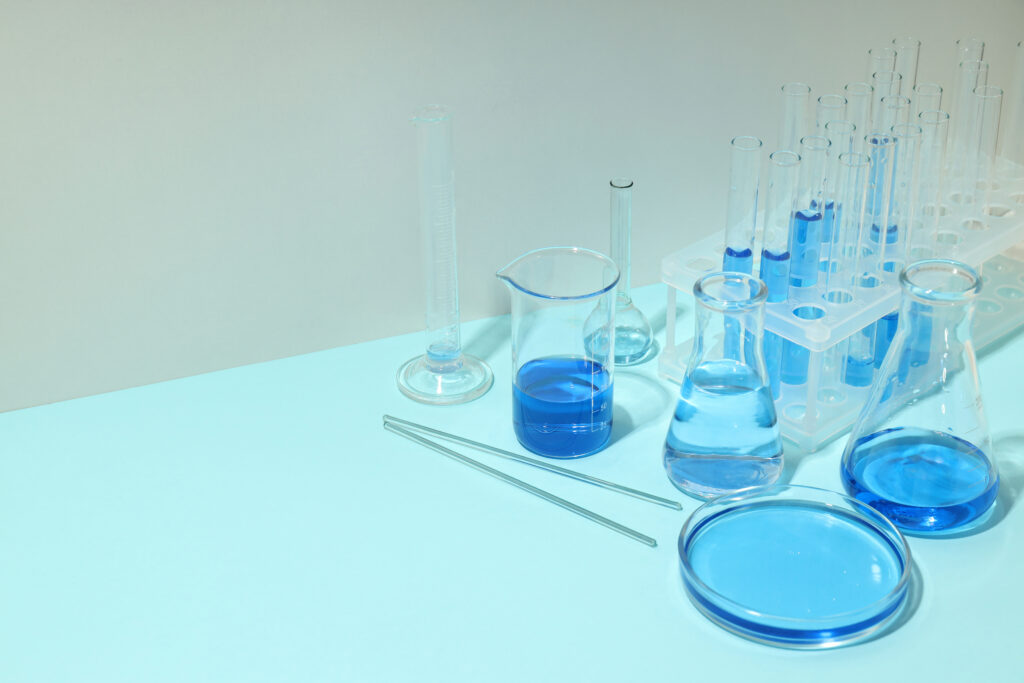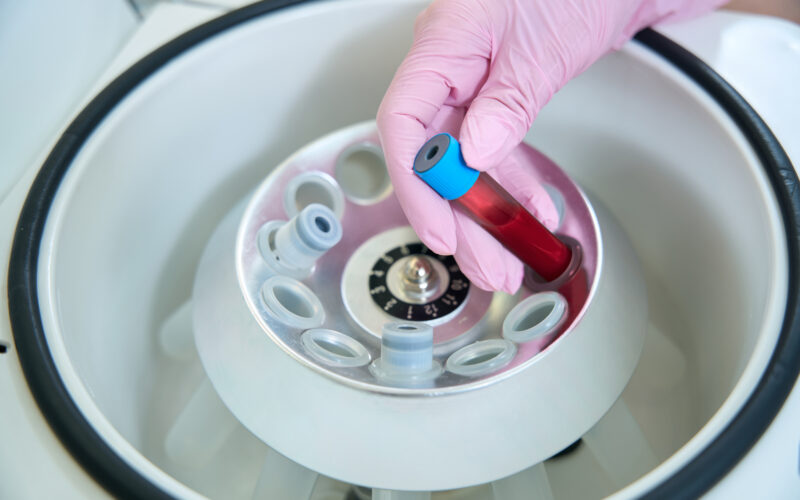Cidara Therapeutics (NASDAQ:CDTX) is a clinical-stage biotechnology company founded with the mission of transforming the prevention and treatment of serious viral and infectious diseases through a new class of long-acting antiviral immunotherapies. Headquartered in San Diego, the company has built its scientific identity around its proprietary drug-Fc conjugate platform, Cloudbreak, which is designed to merge the precision of targeted antiviral drugs with the durability and immune engagement capabilities of antibody fragments. From its inception, Cidara positioned itself not as a traditional antiviral developer but as a pioneer in creating single-dose, long-lasting therapies capable of protecting high-risk populations regardless of immune status. This focus established the company as a unique innovator in an area of medicine where traditional vaccines and short-acting antivirals often fall short, especially among elderly, immunocompromised, or medically fragile individuals.
Over the years, Cidara has advanced several early programs, but its most transformative achievement emerged through the development of CD388, an investigational long-acting antiviral candidate engineered to provide universal, season-long protection against influenza. Unlike conventional flu vaccines that rely on the patient’s immune response, CD388 is structured to directly neutralize influenza viruses while maintaining prolonged activity in the body, offering a fundamentally different and potentially superior approach to seasonal flu prevention. The company’s drug-Fc conjugates are designed to combine a well-established antiviral mechanism with an engineered antibody fragment, creating a durable therapeutic modality that stands out in both concept and application. This bold scientific direction placed Cidara at the forefront of next-generation infectious disease therapeutics.
Cidara’s scientific progress attracted increasing attention from regulatory agencies, academic partners, and major pharmaceutical companies. The company successfully advanced CD388 into late-stage clinical development, supported by breakthrough designation from the U.S. Food and Drug Administration—a recognition reserved for therapies that address serious conditions and demonstrate substantial improvement over existing standards of care. Cidara’s clinical data, including long-lasting protection from symptomatic influenza in mid-stage trials, reinforced the global potential of a therapy that could help reshape public health strategies for flu prevention. Its long-acting antiviral approach also aligned with growing concerns surrounding variable flu vaccine efficacy, vaccine hesitancy, and the unmet needs of vulnerable populations.
The strength of Cidara’s platform, combined with the commercial promise of CD388 and the company’s ability to execute large-scale clinical programs, ultimately elevated its strategic importance within the pharmaceutical industry. This trajectory led to a landmark acquisition agreement with Merck, one of the world’s largest drugmakers, which sought to expand its late-stage pipeline in anticipation of future patent expirations for its flagship therapies. Merck’s decision to acquire Cidara in a multibillion-dollar deal underscored the value and potential of the company’s technology, marking a defining moment in Cidara’s evolution from a clinical-stage innovator to a major player in the future landscape of antiviral therapeutics. Today, Cidara is widely recognized for its pioneering approach to infectious disease prevention and its contribution to shaping the next era of long-acting antiviral medicine.
A Transformative $9.2 Billion Acquisition That Validates Cidara’s True Market Value
The acquisition of Cidara Therapeutics by Merck in a nearly $9.2 billion deal has become one of the most defining biotech events of the year, instantly elevating Cidara from a high-potential clinical-stage developer into a fully validated, big-pharma-backed innovator. The purchase price of $221.50 per share, representing a 108.9% premium over Cidara’s previous closing price, signals the tremendous confidence that Merck has placed in the company’s science, its core antiviral platform, and especially its groundbreaking long-acting flu therapy CD388. A premium of this magnitude is not typical for mid-cap biotech deals, and it underscores that Cidara’s technology is not just incremental innovation—Merck is essentially betting on Cidara to play a critical role in redefining flu prevention for the next decade. With Cidara’s market capitalization listed at $3.3 billion before the acquisition announcement, the rapid doubling of share value to $217.89 highlights the explosive investor interest that accompanied the news and reinforces the bullish belief that the company was significantly undervalued prior to the acquisition.

CHECK THIS OUT: Corcept (CORT) Skyrockets 1,534% in 10 Years and Immuneering (IMRX) Reports 86% 9-Month Survival in Pancreatic Cancer.
Merck’s Strategic Urgency Strengthens the Bullish Case for Cidara’s Long-Term Value
Cidara’s acquisition must be viewed within the wider context of Merck’s ongoing strategic repositioning. With Keytruda—the world’s top-selling cancer drug—approaching patent expiry later in the decade, Merck has aggressively expanded its late-stage pipeline to mitigate the coming revenue cliff. Since 2021, Merck has nearly tripled the number of late-stage programs under development, using both internal R&D and high-profile acquisitions. Major deals such as the $11.5 billion acquisition of Acceleron for Winrevair and the $10 billion purchase of Verona Pharma for Ohtuvayre illustrate Merck’s deliberate focus on acquiring assets that reduce revenue concentration risk. The urgency noted by analysts like James Harlow of Novare Capital Management aligns perfectly with Merck’s attempt to diversify beyond oncology and build a more sustainable future pipeline. Therefore, Merck’s acquisition of Cidara is not merely opportunistic—it forms a cornerstone of Merck’s reshaped long-term portfolio strategy. For bullish investors, this means Cidara’s central asset is considered so pivotal that one of the largest pharmaceutical giants is willing to pay a premium and build major future revenue streams around it.
CD388: A Single-Dose, Long-Acting, Universal Flu Prevention Therapy With Massive Market Potential
At the heart of this acquisition is CD388, Cidara’s experimental long-acting antiviral drug with the potential to disrupt the landscape of flu prevention entirely. Unlike traditional vaccines, CD388 is not a vaccine, and this distinction carries enormous regulatory and clinical implications. Because CD388 functions independently of a patient’s immune response, it has the potential to protect individuals regardless of their immune status, including those for whom vaccines are ineffective. The drug’s universal nature—designed to provide long-term, single-dose protection across all flu strains—gives it a powerful competitive edge in an environment where yearly vaccine efficacy fluctuates and regulatory bodies like the FDA and CDC continue to adjust guidance. Analysts have emphasized the significance of this non-vaccine modality, especially in a public health landscape where vaccine fatigue, immunosenescence, and variable vaccine performance continue to present challenges. CD388 could become the most reliable seasonal flu prevention therapy ever developed, making it a cornerstone asset for Merck’s future infectious disease franchise.
Impressive Clinical Data Strengthen the Bullish Promise of CD388
Cidara’s clinical data serve as one of the strongest pillars of the bullish argument. In mid-stage trials, a single dose of CD388 demonstrated up to 76% protection from symptomatic influenza over a 24-week period—that’s nearly half a year of robust protection from a single administration. This performance was recorded in adults aged 18 to 64 who were healthy, unvaccinated, and not receiving additional prophylaxis. The duration and scale of protection offer transformative implications for high-risk flu populations, particularly older adults, immunocompromised patients, and individuals with chronic diseases who either do not respond strongly to vaccines or cannot take them at all. With the drug being evaluated in late-stage trials for adults and adolescents at heightened risk of developing flu complications, CD388 positions itself as a powerful complement—or in some cases, an outright alternative—to the current influenza vaccine ecosystem. This strong efficacy has led to CD388 receiving Breakthrough Therapy Designation from the FDA, accelerating its regulatory path and potentially setting the stage for earlier-than-expected market introduction.
A Game-Changing Drug Development Platform Built on Drug-Fc Conjugates
The bullish thesis expands beyond a single asset. CD388 is part of a broader modality known as drug-Fc conjugates, where Cidara combines a clinically validated antiviral compound—zanamivir, the active ingredient in GSK’s FDA-approved Relenza—with an engineered human antibody fragment. This innovative structure gives CD388 what analysts call a “dual mechanism advantage.” It offers direct antiviral activity while simultaneously leveraging the Fc portion to extend systemic half-life and trigger immune engagement. This combination makes drug-Fc conjugates a highly scalable, high-value platform for future virus-targeted therapies. Successful commercialization of CD388 could validate this platform broadly, opening the possibility for additional partnerships, pipeline expansions, and platform licensing opportunities, all of which significantly enhance the long-term valuation of Cidara under Merck.
Massive Phase 3 Trial Readiness Reinforces Momentum and Commercialization Potential
Cidara’s ability to advance CD388 into a late-phase development program is further demonstrated by its impressive progress in trial enrollment. The company recently confirmed it aims to reach 6,000 participants by December for the pivotal program—one of the largest influenza prevention studies ever undertaken in a non-vaccine therapy. Such large-scale enrollment signals a high level of confidence from investigators, regulators, and partners, as well as the company’s ability to operationalize a trial that mirrors real-world flu exposure across diverse populations. Phase 3 enrollment marks the final major milestone before regulatory submission, and with Breakthrough Therapy designation already in place, CD388’s approval timeline may be significantly accelerated.
Why Merck Sees Cidara as a Core Revenue Driver for the Next Decade
Merck CEO Robert Davis has explicitly described CD388 as a future growth engine, stating that the therapy has “the potential to be another important driver of growth through the next decade.” This statement is particularly meaningful given Merck’s pipeline restructuring. As Keytruda faces generic competition later this decade, Merck must construct an ecosystem of durable, differentiated revenue-generating therapies to fill the gap. With the acquisition deal structured at $6.96 billion in equity value, closing projected in the first quarter of 2026, and the market’s rapid recognition of CD388’s potential, bullish investors see a clear picture emerging: Merck believes CD388 can scale substantially, both clinically and commercially, and is prepared to heavily invest in its rollout worldwide.
A Single-Asset Story With Extraordinary Upside Potential
While analysts such as Courtney Breen from Bernstein acknowledge that Cidara is “essentially a single asset story,” this does not dilute investor optimism. Instead, it strengthens the clarity and focus of the bullish narrative. Unlike companies with scattered or unproven pipelines, Cidara has concentrated its efforts on a highly differentiated therapy with blockbuster-level potential. Single-asset biotech companies succeed when their core product achieves market validation, and the Merck acquisition demonstrates that such validation is already in motion. Although commercialization and market-building costs may reflect long-term investment needs, the return potential for a universal, long-acting flu prevention therapy remains massive.
READ ALSO: Tiziana (TLSA) Surges 143% in 2025 and Immuneering (IMRX) Reports 86% 9-Month Survival in Pancreatic Cancer.








